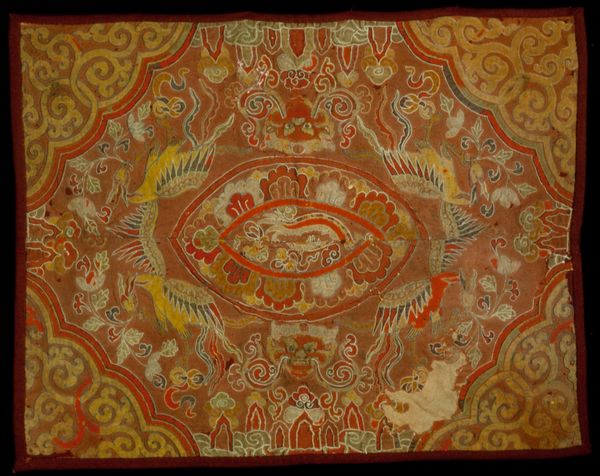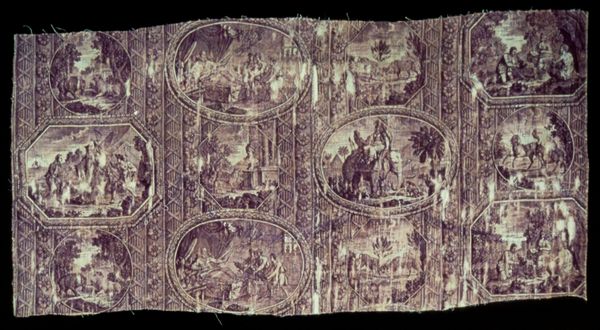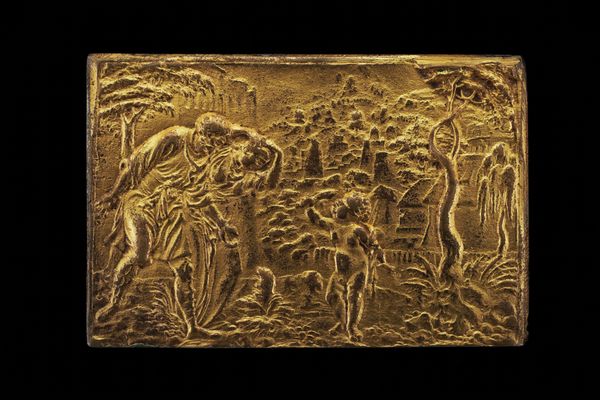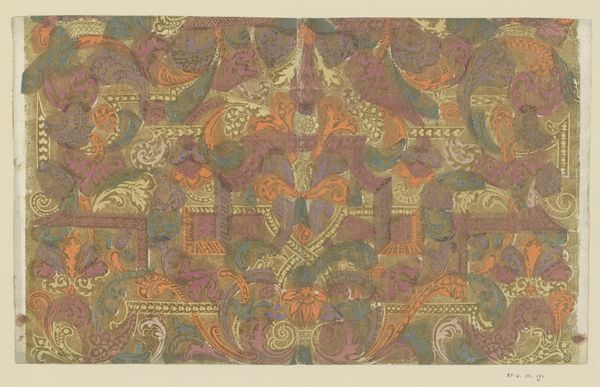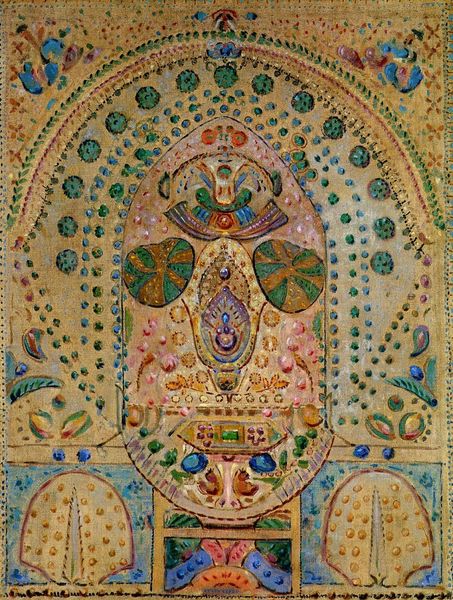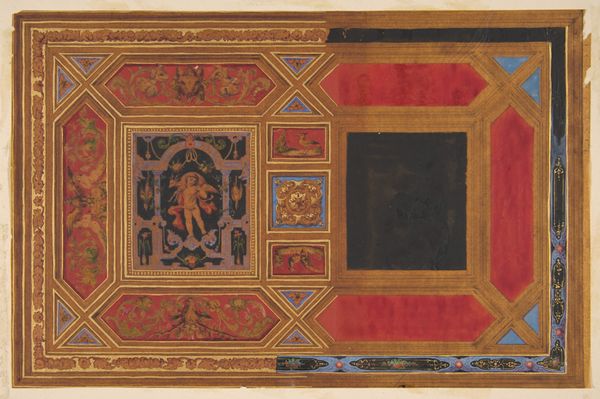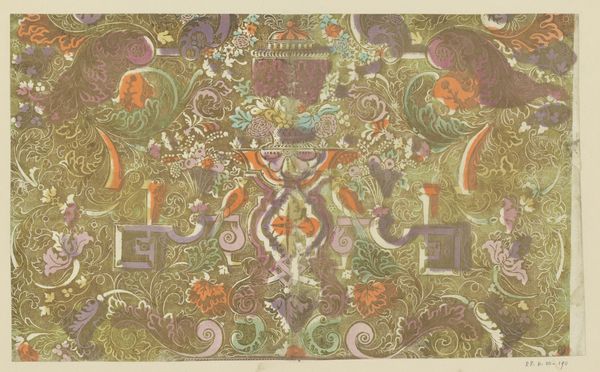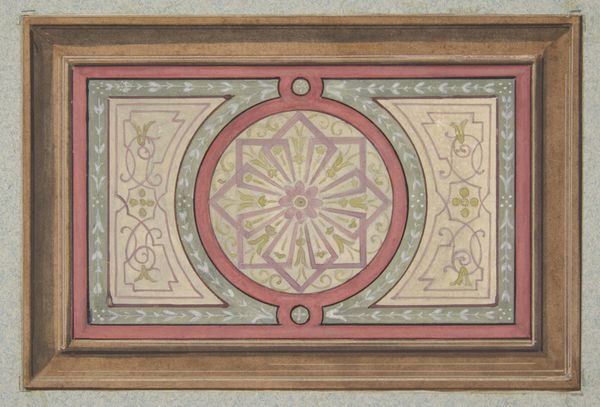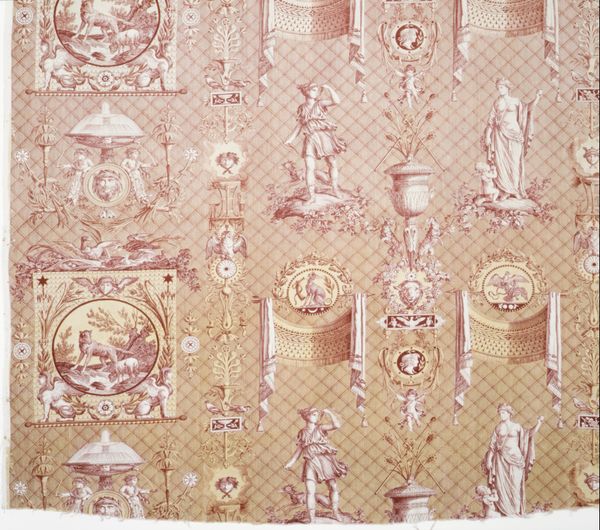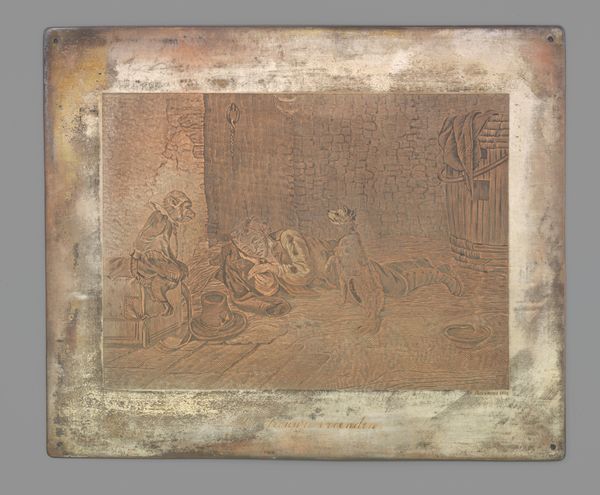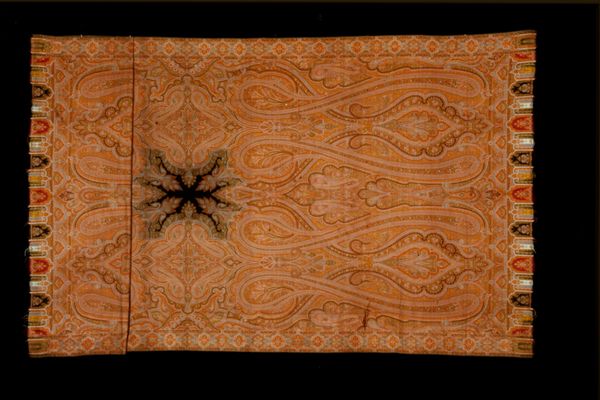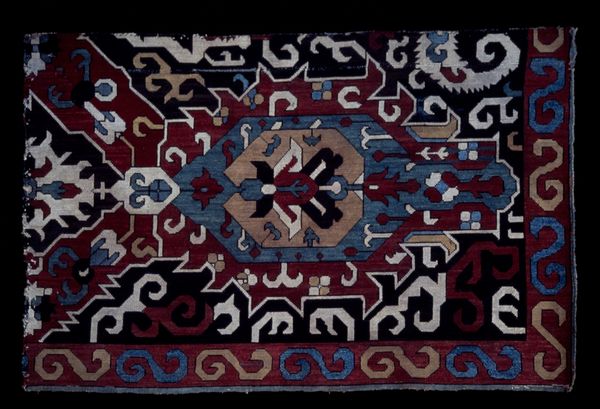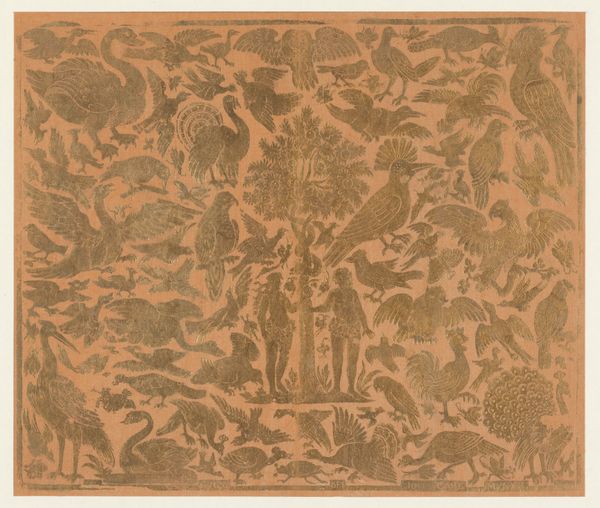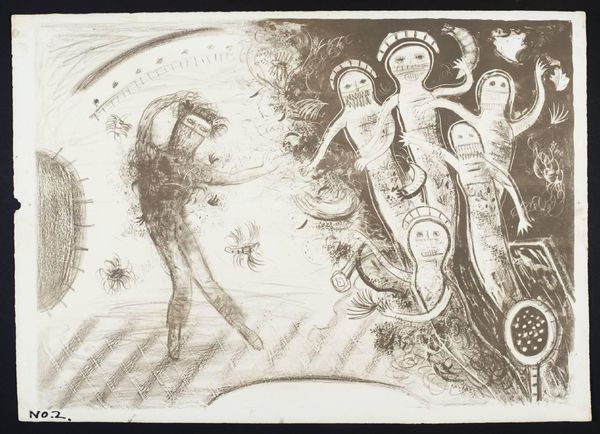
gold, relief, guilding, sculpture, wood
#
medieval
#
narrative-art
#
pattern
#
asian-art
#
gold
#
relief
#
guilding
#
figuration
#
geometric pattern
#
geometric
#
sculpture
#
intricate pattern
#
wood
Dimensions: 8 x 26 5/8 x 5/8 in. (20.32 x 67.63 x 1.59 cm)
Copyright: Public Domain
This book cover of the Prajnaparamita, made by an anonymous artist, presents us with a rich array of Buddhist iconography. At its heart, we find the serene figures of Buddhas and Bodhisattvas, each pose and hand gesture, or mudra, laden with significance. The lotus position, repeated throughout, echoes across time and cultures—from ancient Indian ascetics to modern yoga practitioners—symbolizing purity, spiritual awakening, and detachment from the material world. It is a visual echo that resonates deeply within our collective consciousness. Consider the raised hand, the Abhaya mudra, a gesture of reassurance and protection, seen as a calming and reassuring presence to ward off fear. This echoes the raised hand of Roman emperors or Christian saints. Across continents and epochs, this gesture represents authority, guardianship, and benevolence, reminding us that our need for protection and guidance transcends specific cultural contexts. It is a cycle of cultural memory, where symbols morph, adapt, and resurface.
Comments
minneapolisinstituteofart about 2 years ago
⋮
This elaborately carved cover once protected the Buddhist manuscript known as the Prajnaparamita sutra, or The Perfection of Wisdom. The Mahayana Buddhist text articulates the impermanence of all phenomena, including the notion of selfhood. Personifying this transcendent wisdom is the multiarmed goddess Prajnaparamita, the mother of all Buddhas, shown at center; she is seated in a grand throne, lifted by a half-man, half-bird kinnara. The goddess holds a book in her upper-left hand and a vajra (the ritual implement that signifies awakening) in her upper-right hand. She gestures reassurance with her front- right hand and meditation with her front-left hand. Even in miniature, the deity exudes a calm awareness and noble cultivation. Prajnaparamita is flanked by Avalokiteshvara (right) and Green Tara (left), two bodhisattvas (enlightened deities who forgo paradise to guide earthy beings) associated with the virtues of compassion.
Join the conversation
Join millions of artists and users on Artera today and experience the ultimate creative platform.
